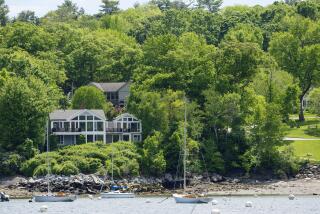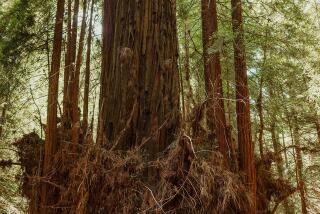Group Buys Chunk of Maine Forest
BOSTON — About 185,000 acres of privately owned Maine wilderness will be opened for public recreation in a $35.1-million conservation deal, environmentalists said Monday.
The purchase by the Nature Conservancy from International Paper Co., the largest of its kind in Maine’s history, comes less than a week after New York, Vermont, and New Hampshire joined with private investors and environmentalists in a $76-million deal to preserve 300,000 acres of similar wilderness.
Both buys encompass some of the country’s most breathtaking landscape, falling within a natural region known as the Northern Appalachian Boreal Forest that sweeps south from Canada through northern New England and west to the Adirondacks of New York.
The 286 square miles of unbroken Maine forest includes a 40-mile stretch of the Upper St. John River in the state’s far northwestern corner, an area heavily populated by moose and bear. It is also home to the second-highest concentration of rare plants in Maine, including the endangered Furbish lousewort, which grows nowhere else in the world.
The Upper St. John is “the premier wilderness river in the Northeast,” said Kent Wommack, executive director of the Nature Conservancy in Maine. “When we asked ourselves how we can afford this, we then asked ourselves, ‘How can we afford not to?’ ”
Primitive lean-tos are about the only signs of civilization within the property, just east of the Canadian border.
For many in Maine, the smell of conservation is particularly sweet. Roughly 15% of the state went on the market this year alone, including recent sales of more than 2 million acres that have sent state legislators seeking scarce conservation dollars and responding to calls for creating a national park.
Working with conservation groups and timber companies, the conservancy plans to maintain land near the river for canoeing, hunting, fishing and other traditional recreation. Some of the most sensitive woodlands will be designated for conservation, whereas other areas will be available for environmentally approved logging.
“Whether you come to fish, to hunt, to hear the loons or to challenge the rapids, this land offers spectacular and unforgettable country that will remain intact for future generations to enjoy,” said Jay Espy, president of Maine Coast Heritage Trust, a statewide conservation land trust, and chairman of the Washington-based National Land Trust Alliance. “In many ways, it’s a dream come true.”
The conservancy is an Arlington, Va.-based nonprofit group that has protected more than 10 million acres in the U.S. and Canada.
More to Read
Sign up for Essential California
The most important California stories and recommendations in your inbox every morning.
You may occasionally receive promotional content from the Los Angeles Times.










